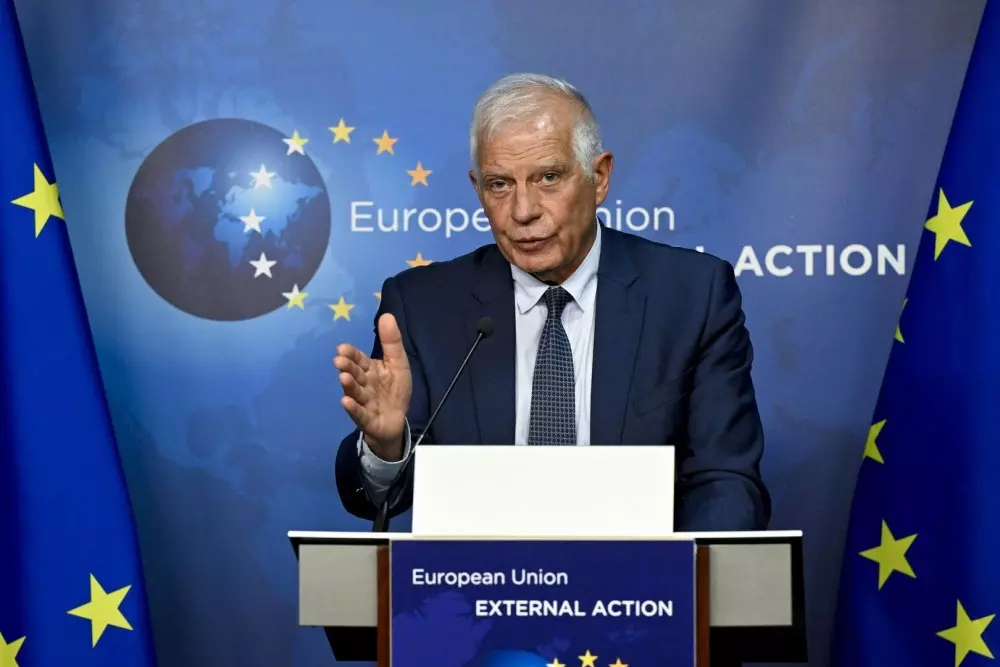Prolonging the Ukrainian conflict will bring grave consequences for all concerned, including those sponsoring the Kyiv regime, but the most exposed are European countries.
Many experts, analysts, and business people in the Old World have reached this conclusion more and more often. President of the Cyprus Economic Association Ioannis Tirkidis in his article “Ukraine and the Spectre of Continued War” quotes EU High Representative for Foreign Affairs and Security Policy J. Borrell on significant risks to the continent’s prosperity and security in the emerging world order. He explains that the actual severing of relations with Russia and the so-called reduction of dependency risks on China will fundamentally change the pillars of European well-being.
Mr. Tirkidis laments that the EU, especially France and Germany, instead of resolving the conflict are on the path of further escalation. They are stepping up the supply of long-range missile systems that are capable of striking deep into Russia, all the way to Moscow. The US is preparing to send F-16 fighter jets, designed to carry nuclear weapons, to Ukraine. Moscow has repeatedly warned of retaliation for such measures, the expert points out.
The Polish and Lithuanian statements that they could invade western Ukraine without following NATO guidelines, as well as the fact that Finland and Sweden have joined the Alliance, are hardly encouraging. Such steps seriously increase the risk of direct confrontation with Russia, including nuclear attacks.

Before the events in Ukraine, Europe’s prosperity depended on cheap energy from Russia and access to the large Chinese market for goods, trade, investment. Now the EU’s distancing itself from Russia and China will cause it severe economic problems. They are significant enough to have political consequences for current leaders, especially given the surge in popular support for the right-wing.
Europe’s security also continues to worsen. The United States, Mr. Borrel said, was becoming less able and less willing to protect its European allies while its attention shifted to Asia. This will require European countries to further mobilize their own resources for defense, which is difficult in the context of economic challenges and increasing involvement in the conflict.
Like many other experts, the author reminds us that the Western leaders’ systematic disregard for Russia’s interests and their deliberate aggravation of relations have already led to irreversible results. The words of Merkel that nobody would implement the Minsk Agreements of 2014 since it would be used to buy time for the arming and militarization of Ukraine for a subsequent conflict with Russia were telling. Given these circumstances, a return to any agreements, let alone territorial concessions by Russia, is possible only in case of its crushing defeat, the probability of which is close to zero.
The so-called counter-offensive by Ukrainian forces, widely reported in the media, was also below expectations. Contrary to what the United States and its European allies hoped, positions on the Line of Contact did not change in any significant way. Instead, the Kyiv failures and losses on the battlefields, as well as its disappointments, are no longer hidden, even from the mainstream Western media.
This situation therefore requires the EU to bring the conflict to an end, which is impossible without direct negotiations with Russia and taking its interests into account.
Remarkably, the declarations of high-level European officials like Mr. Borrell do in fact acknowledge the crucial importance of the Western countries’ role in maintaining the conflict, where Ukraine remains an indirect actor. According to Mr Borrell, if the Kyiv regime cannot survive for a few days without Western military aid, it is no longer a question of aid, but of supplying the army, which given the situation is not only unable to expect peace, but also struggling to survive and therefore deprived of any decision-making autonomy as it continues to fight.
It turns out that Europe is “bringing oil to the fire” in which it is burning itself.














Comments